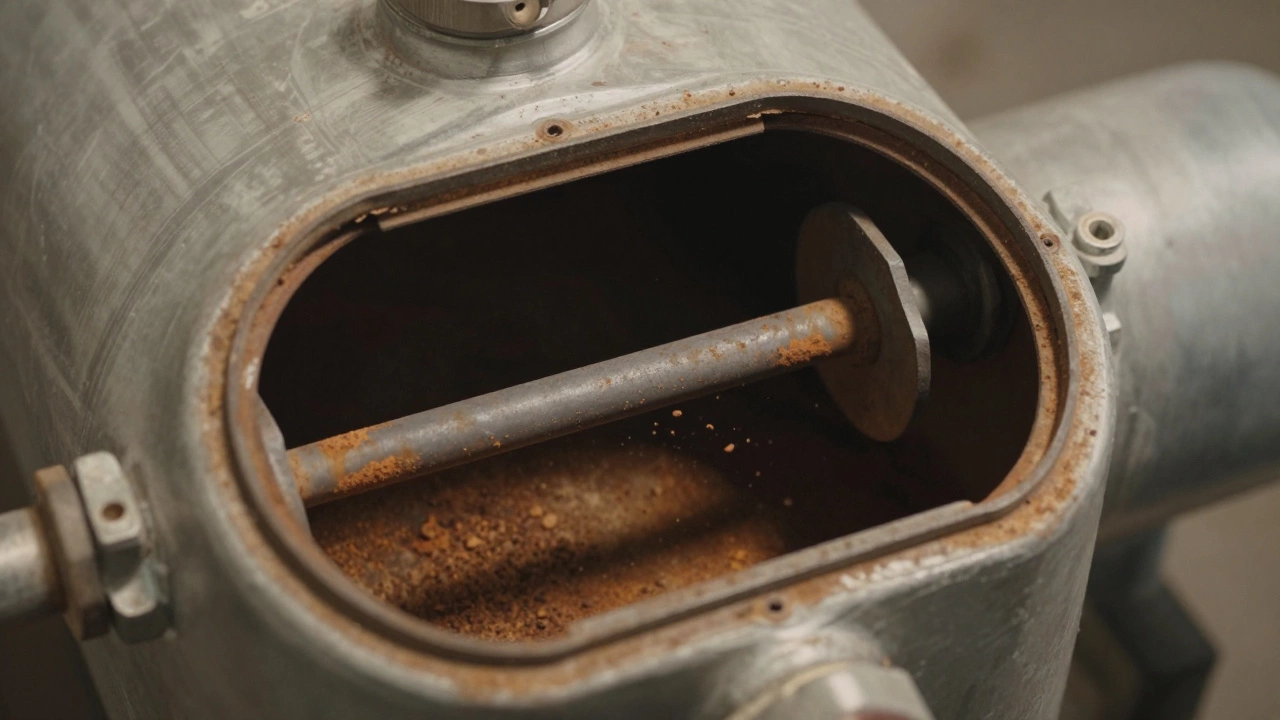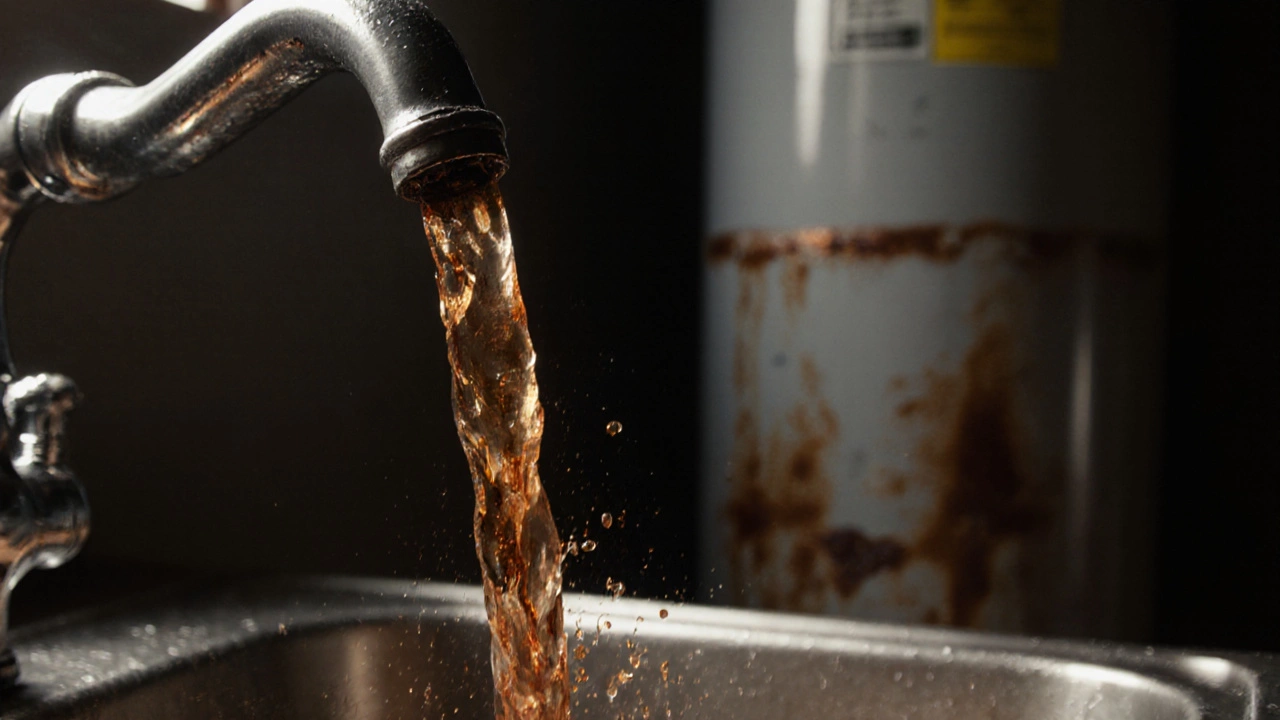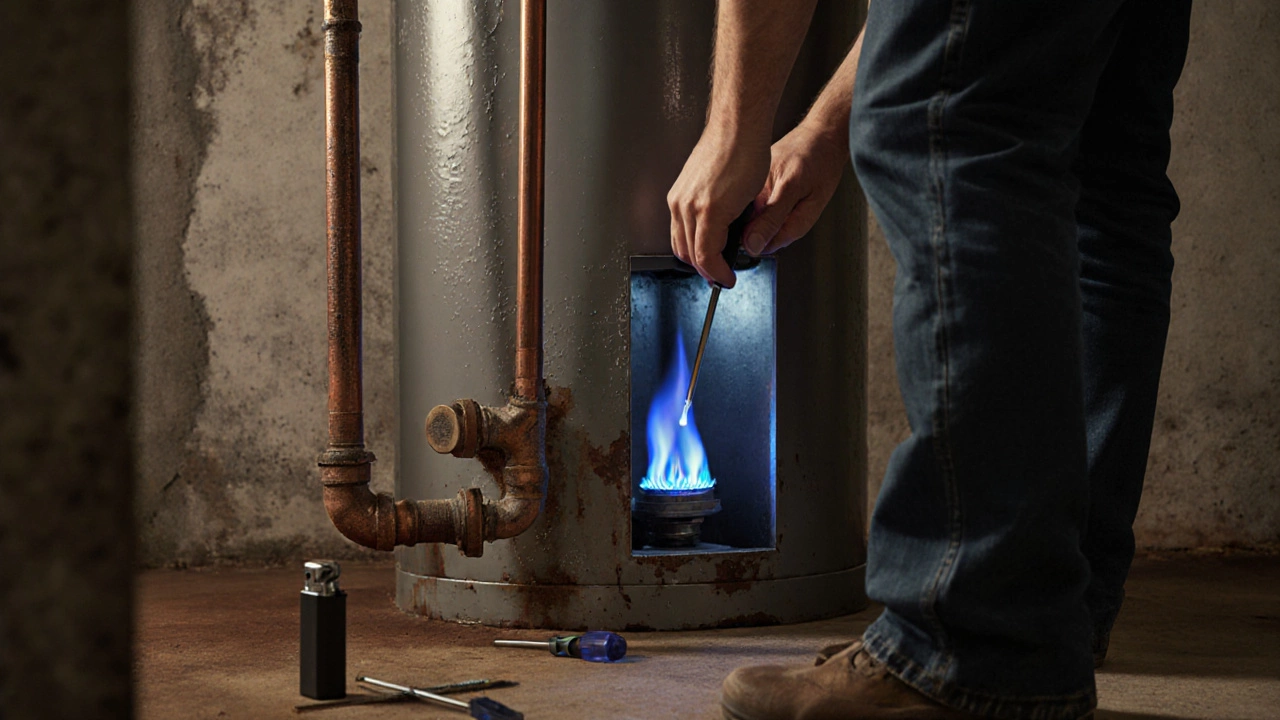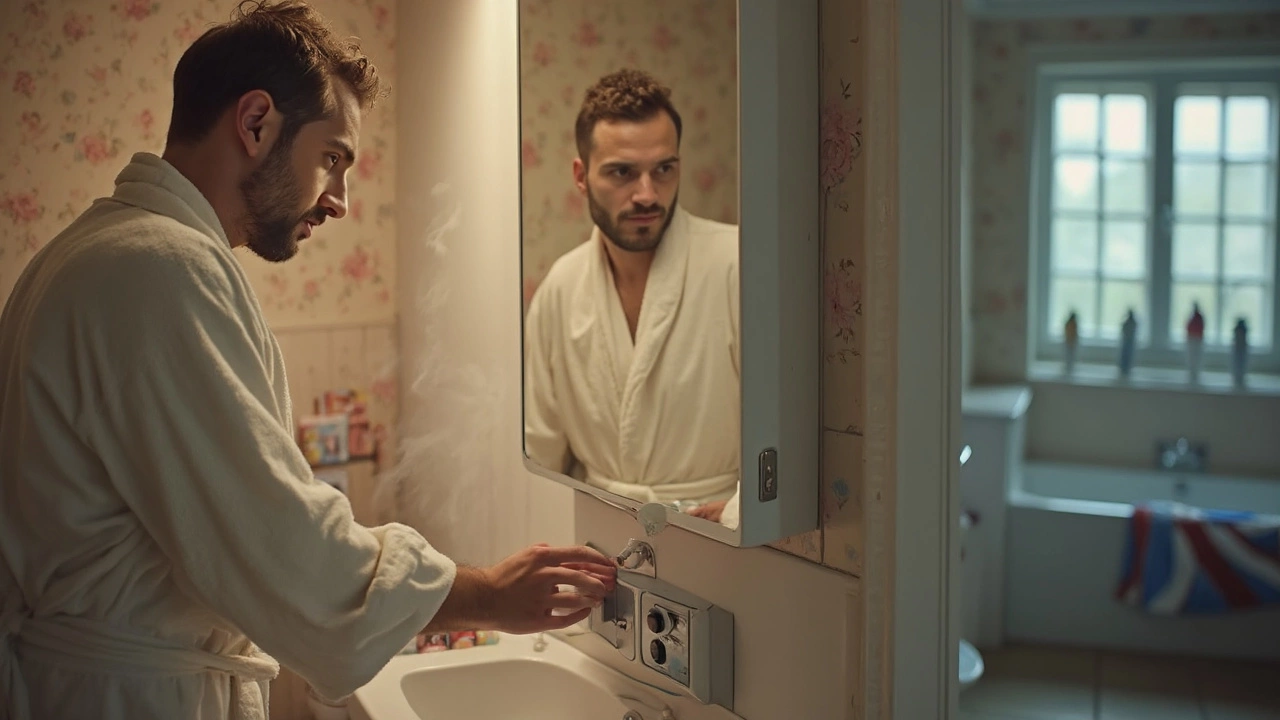
Most water heater failures are caused by a few common parts wearing out-like the anode rod, heating elements, or pressure valve. Learn what breaks most often and how to prevent costly replacements.
If your shower suddenly feels like an ice cube or your kitchen tap sputters with lukewarm water, your water heater is probably sending out a warning. Most of these issues are simple enough to diagnose at home, and fixing them can save you time and money. Below we break down the typical signs of trouble, quick DIY checks, and when it’s best to call in a qualified technician.
First, pay attention to the temperature. If hot water runs out quickly or never gets hot, it could be a faulty thermostat, a broken heating element, or even a sediment‑filled tank. Strange noises – rumbling, popping or clanking – usually mean mineral buildup is churning inside the tank. Leaks around the base signal a cracked tank or a loose pipe joint, and any water pooling under the unit should be dealt with right away.
Another red flag is the reset button on electric heaters. Many owners wonder, “Is it safe to press the reset button?” The answer is yes, but only if the button keeps popping back out. A constantly tripping reset means the heating element or internal wiring is overheating and needs professional repair.
Start by checking the power supply. For electric heaters, make sure the breaker hasn’t tripped and the unit is still receiving voltage. For gas models, verify the pilot light is lit and the gas valve is open. If you’re comfortable, turn off the power, drain a few gallons of water to flush out sediment, and then refill the tank. This often restores performance and reduces noise.
Next, locate the reset button—usually a red button on the front of the heater. Press it firmly; if it stays in, you’ve reset the system. If it pops out again within a minute, that’s a sign of an underlying fault. At this point, it’s safest to stop and let a certified technician handle the repair.
Don’t forget the regular maintenance schedule. Flushing the tank once a year, checking the anode rod for corrosion, and making sure the vent (for gas heaters) isn’t blocked can prevent most major failures. These tasks are quick, cheap, and keep your hot water running smoothly.
When in doubt, especially if you smell gas, see a lot of water pooling, or the unit won’t turn on at all, call us at South Shields Appliance Repair Services. Our certified engineers know how to fix every type of water heater safely and efficiently, so you can get back to warm showers without hassle.

Most water heater failures are caused by a few common parts wearing out-like the anode rod, heating elements, or pressure valve. Learn what breaks most often and how to prevent costly replacements.

Watch for rusty water, strange noises, leaks, and rising bills-these are clear signs your water heater is failing. Know when to replace it before it breaks and floods your home.

No hot water in the shower? Most often, it’s a simple fix-check the breaker, flush the tank, or reset the thermostat. Learn how to diagnose and repair common water heater issues yourself.

Ever wonder why your hot showers only last until you hit the reset button—again? This guide explains what triggers the water heater's reset, the most common underlying problems, and how to tell the difference between a quick fix and a problem that needs a pro. We'll break down the technical stuff into plain English, share some simple troubleshooting steps, and toss in real tips you can actually use at home. You'll also get a heads-up on when to call an expert so you can stop playing water heater roulette every morning.